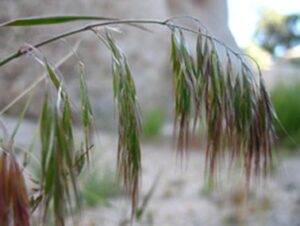With the passage of the 2014 Farm Bill, essential price protection and federal farm subsidy provisions were directly linked to compliance with, and certification of compliance to, wetland and erodable land provisions within FSA and NRCS guidelines.
Non-compliance, or failure to complete the certification form AD-1026 (to be on file with the local FSA office), is directly linked to disqualification from receiving important price protection and farm subsidy benefits made available through the Farm Bill. The 2019 Farm Bill keeps this link intact.
Courtesy FSA / USDA
“The Food Security Act of 1985, as amended, requires producers participating in most programs administered by the Farm Service Agency (FSA) and the Natural Resources Conservation Service (NRCS) to abide by certain conditions on any land owned or farmed that is highly erodible or that is considered a wetland. Producers participating in these programs and any person or entity considered to be an “affiliated person” of the producer, are subject to these conditions. The regulations covering the conditions are set forth in the Federal Register at 7 CFR Part 12.
To be in compliance with the highly erodible land conservation and wetland conservation provisions, producers must agree, by certifying on Form AD-1026, that they will not:
- Produce an agricultural commodity on highly erodible land without a conservation system;
- Plant an agricultural commodity on a converted wetland;
- Convert a wetland to make possible the production of an agricultural commodity.”
(https://www.fsa.usda.gov/programs-and-services/payment-eligibility/conservation_compliance/index)
Courtesy USDA – July 22, 2014
“…Changes mandated through the 2014 Farm Bill require them to have on file a Highly Erodible Land Conservation and Wetland Conservation Certification (AD-1026). The Farm Bill relinked highly erodible land conservation and wetland conservation compliance with eligibility for premium support paid under the federal crop insurance program.
“It’s important that farmers and ranchers taking the right steps to conserve valuable farm and natural resources have completed AD-1026 forms on file at their local Farm Service Agency (FSA) office,” said Vilsack. “This will ensure they remain eligible for crop insurance support.”
For farmers to be eligible for premium support on their federal crop insurance, a completed and signed AD-1026 form must be on file with the FSA. Since many FSA and Natural Resource Conservation (NRCS) programs have this requirement, most producers should already have an AD-1026 on file. If producers have not filed, they must do so by June 1, 2015.
When a farmer completes the AD-1026, FSA and NRCS staff will outline any additional actions that may be required for compliance with the provisions. The Risk Management Agency, through the Federal Crop Insurance Corporation (FCIC), manages the federal crop insurance program that provides the modern farm safety net for American farmers and ranchers.
Since enactment of the 1985 Farm Bill, eligibility for most commodity, disaster, and conservation programs has been linked to compliance with the highly erodible land conservation and wetland conservation provisions. The 2014 Farm Bill continues the requirement that producers adhere to conservation compliance guidelines to be eligible for most programs administered by FSA and NRCS. This includes the new price and revenue protection programs, the Conservation Reserve Program, the Livestock Disaster Assistance programs and Marketing Assistance Loans implemented by FSA. It also includes the Environmental Quality Incentives Program, the Conservation Stewardship Program, and other conservation programs.
FSA recently released a revised form AD-1026, which is available at USDA Service Centers and online at: http://forms.sc.egov.usda.gov/efcommon/eFileServices/eForms/AD1026.PDF. USDA will publish a rule later this year that will provide details outlining the connection of conservation compliance with crop insurance premium support. Producers can also contact their local USDA Service Center for information. A listing of service center locations is available at www.nrcs.usda.gov/wps/portal/nrcs/main/national/contact/local/.”





